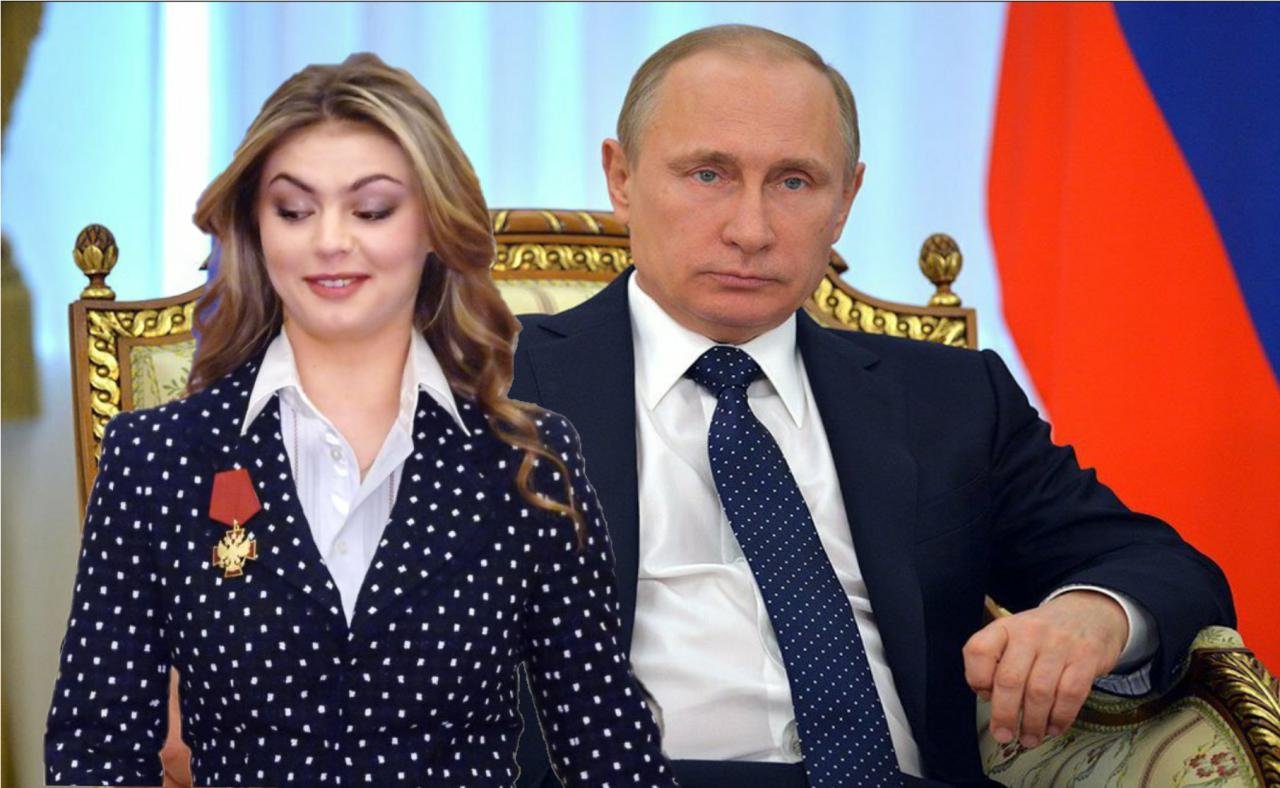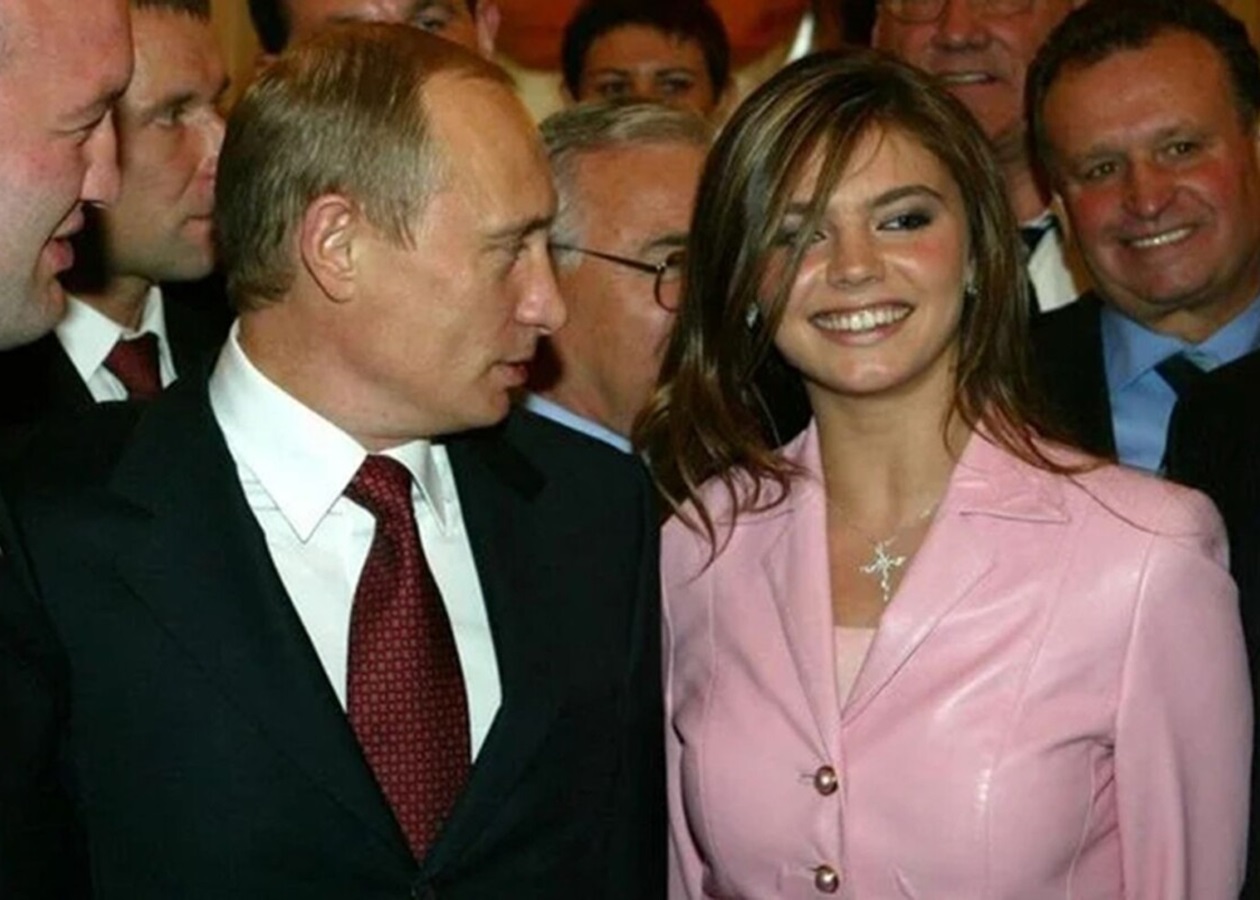The United States government has recently imposed punitive measures on Alina Kabaeva, the alleged romantic partner of Russian President Vladimir Putin. These measures stem from the U.S. administration’s ongoing response to Moscow’s actions that challenge international norms of behavior. Kabaeva, a former Olympic rhythmic gymnast and an influential figure in Russian media, is among the latest individuals targeted by the U.S., signaling Washington’s determination to hold Putin’s closest associates accountable for Russia’s activities on the global stage.
These latest sanctions serve as an extension of the U.S.’s broader efforts to pressure Putin and his inner circle, with the aim of altering Russia’s approach to international diplomacy. While the exact nature of Kabaeva’s relationship with Putin remains shrouded in speculation, her inclusion in these punitive measures is an undeniable indication of the U.S.’s intent to exert influence on those within Putin’s sphere. These sanctions are not only emblematic of the deep-seated geopolitical tensions between Washington and Moscow, but they also highlight the increasing willingness of the U.S. to leverage personal relationships in their strategic operations.
This move is being viewed as a strategic play designed to disrupt Putin’s inner circle, adding another layer of complexity to the already fraught U.S.-Russia relations. This approach, however, has raised questions regarding its effectiveness and potential ramifications on personal freedoms. Despite these concerns, the U.S. maintains that such measures are necessary to address Russia’s behavior in the global arena. As the situation continues to unfold, the international community watches with anticipation to see how this bold move will impact diplomatic relations moving forward.

Unveiling the Sanctions on Vladimir Putin’s Alleged Romantic Partner : What You Need to Know
The US government has recently taken significant steps to impose sanctions on Vladimir Putin’s supposed romantic partner, Alina Kabaeva. This move is part of a larger strategy to apply pressure on the Russian administration due to its continued actions that go against internationally accepted norms. The decision to include Kabaeva in these measures has caused a stir, considering her rumored personal relationship with Putin. However, it’s worth noting that she holds substantial power in her own right. As the former chairwoman of the National Media Group, Russia’s largest media conglomerate, Kabaeva has significant influence over Russian media narratives. Furthermore, she is an ex-gymnast who has been a member of the Russian Duma, the country’s primary legislative body.
There has been no official confirmation of a romantic relationship between Putin and Kabaeva, but persistent rumors and speculations have linked them for years. The sanctions target Kabaeva’s economic interests, freezing any assets she may hold within US jurisdiction and generally barring US persons from dealing with her. This is a clear indication of the US’s willingness to target individuals close to Putin, an approach that may have considerable implications for the Russian leader’s inner circle.
The reasons behind the sanctions are multifaceted. They are certainly a direct response to Russia’s alleged activities, which include cyber-attacks, election interference, and the ongoing conflict in Ukraine. However, they may also be designed to disrupt the networks of power and influence within Russia. By targeting Kabaeva, the US could be attempting to send a clear message to Putin and his allies: that no one is exempt from potential consequences. Despite the potentially far-reaching impacts of these sanctions, it remains to be seen how effective they will be in inducing a change in Russia’s actions. As the situation unfolds, it’s crucial to understand that these sanctions represent more than just punitive measures; they are a strategic tool in a geopolitical game.
Who is the target of new sanctions against Vladimir Putin’s alleged romantic partner?
The recent sanctions imposed by the U.S. government have targeted a previously unconcerned figure – Alina Kabaeva, who is rumored to be the romantic partner of Russian President Vladimir Putin. The basis for these sanctions is rooted in allegations of her profiting from Putin’s regime and his alleged corrupt practices.
Amidst escalating tensions between the U.S. and Russia, these sanctions serve as a strategic move to exert pressure on Putin’s inner circle. As a former Olympic gymnast and a notable personality in Russian media, Kabaeva holds significant influence and stature. This action taken by the U.S. seeks to tighten the economic noose around those benefiting from Putin’s administration and to discourage their support for his leadership.
The sanctions include freezing assets and banning transactions with American entities, which, in effect, severely limits their capacity to do business internationally. However, it’s important to note that these allegations and the nature of Kabaeva’s relationship with Putin remain speculative and unconfirmed, despite numerous tabloid reports and public curiosity.
The U.S. government’s decision to include her in these sanctions, nonetheless, indicates a potential shift in their approach to dealing with Putin’s regime – moving beyond the political sphere and into the personal domain. While the effectiveness of these sanctions remains to be seen, they undoubtedly add another layer of complexity to the already strained relations between the two countries.

The Background: The Relationship Between Putin and His Alleged Partner
The relationship between Vladimir Putin, the enduring president of Russia, and his rumored partner, Alina Kabaeva, a retired rhythmic gymnast and politician, has been a subject of intense speculation for many years. A veil of secrecy has always shrouded the private life of Putin, and his assumed relationship with Kabaeva is no exception. The Russian leader is known for his stoic and reserved demeanor and has consistently declined to comment on his personal life. This practice of privacy has led to a proliferation of rumors and conjecture about his relationship with Kabaeva.
Kabaeva, a renowned gymnast who won numerous international accolades, retired in 2007 and transitioned into politics, becoming a member of the Russian Parliament. The rumors of her relationship with Putin began to circulate around this time. Despite the lack of public acknowledgment from either party, the alleged relationship has been frequently reported on by both local and international media, often amidst controversy.
The conjecture about Putin’s relationship with Kabaeva has been a vital aspect of the enigma that surrounds the Russian leader. This speculation is often accompanied by a sense of intrigue, as Putin is seen as an emblem of power and control, while Kabaeva is a symbol of grace and femininity. There are ongoing debates about the nature of their relationship, but the two individuals at the heart of the speculation remain silent, adding even more mystery to the narrative.
The relationship between Putin and his rumored partner, Kabaeva, has thus become a subject of intrigue and speculation within and beyond Russian borders. This fascination is in part due to the stark contrast between Putin’s austere image and Kabaeva’s glamorous persona. While the truth may remain shrouded in secrecy, the speculation surrounding their relationship continues to fuel public interest and curiosity.
Impact: how sanctions against Vladimir Putin’s alleged romantic partner could affect international relations
Imposing sanctions on Vladimir Putin’s purported romantic partner could have a profound influence on global interactions. First, these restrictions would represent a new level of personal intrusion in international politics, which could potentially lead to heightened tensions between Russia and countries supporting the sanctions.
This could cause Russia to retaliate, either economically or politically, thereby further straining its relationship with the West. Moreover, these sanctions might be seen as an attempt to manipulate Putin’s personal life for political gain, which could be perceived as a violation of personal privacy and dignity by other world leaders. This could lead to a decrease in global support for such measures, potentially undermining the credibility and effectiveness of future sanctions.
On the other hand, if these sanctions are successful in curbing Putin’s actions, they could set a precedent for using similar tactics against other world leaders, which could change the landscape of international politics. However, such a tactic could also lead to an escalation in personal attacks and negative consequences for innocent family members or associates. This heightened level of personal intrusion could potentially result in increased instability and unpredictability in international relations.
Lastly, the effectiveness of these sanctions is uncertain. While they may cause personal discomfort for Putin, they may not necessarily lead to a change in his policies or actions. Therefore, the potential gains from such sanctions must be weighed against their potential to disrupt international relations and create further conflict. This situation demonstrates the complexity and delicacy of international politics, where actions intended to curtail one issue can inadvertently cause a cascade of unforeseen consequences.

What This Means for Putin and His Associates
The recent geopolitical developments have far-reaching implications for Putin and his associates. On a global scale, these events could potentially alter the dynamics of their international relationships, as well as their domestic political landscape. Several countries are adopting a harder stance against Putin’s administration, reflecting a growing international sentiment that could jeopardize their diplomatic ties.
These developments may put them in a precarious position, as it could possibly lead to economic sanctions or other punitive measures that could undermine their global standing and economic stability. On a domestic level, Putin and his comrades could face mounting pressure as these international developments could fuel internal dissent and further amplify the voices of the opposition.
This could potentially challenge their grip on power and may necessitate a shift in their political strategies. However, Putin and his associates have shown resilience in the face of adversity in the past. It remains to be seen how they would navigate these challenging times and what measures they would take in response to these developments. Their decisions could change the course of their political future, for better or for worse.